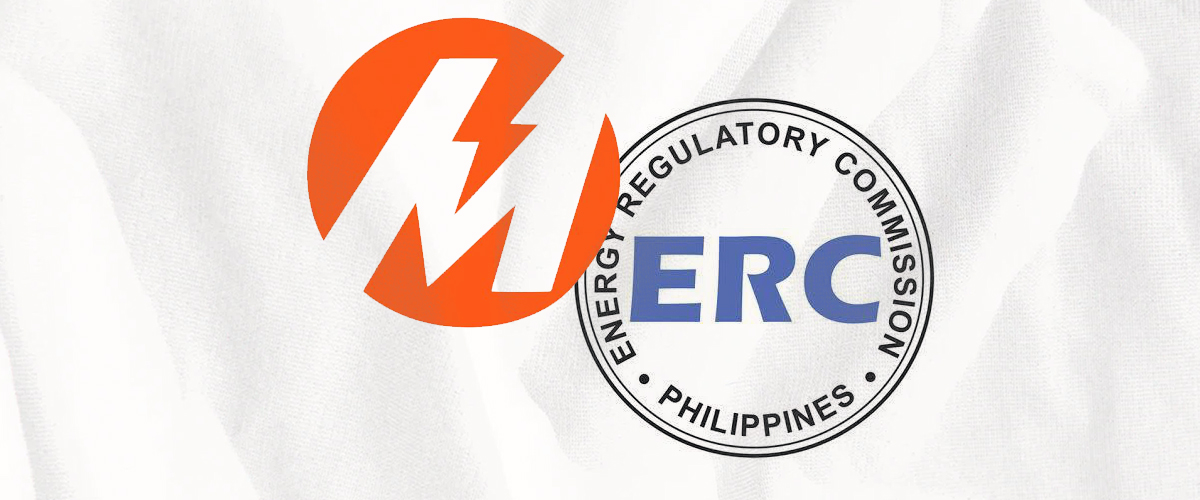FORMER ERC (Energy Regulatory Commission) commissioner Alfredo J. Non petitioned a recomputation at the Court of Appeals (CA) regarding the rate charges of Meralco, amounting a total refund of P160B to its consumers.
In the petition, the decision made by ERC didn’t result in “rates that may be considered just and reasonable based on standards set by the Supreme Court.”
Non noted that the actual weighted average tariff (AWAT) billed by Meralco ought to have an independent inspection instead of just basing on the AWAT reports that were submitted by Meralco to ERC.
On his computations, ERC’s order and decision required Meralco to refund P40.5 billion to its customers. The said amount is only equivalent to 25% of the estimated total over-recovery of P160 Billion.
The computational error was applied across the third regulatory period dating from 2012 to 2015, the ERC has then did not conducted a regulatory reset for Meralco.
A Regulatory Reset is done as a requirement after every regulatory period. This is where the ERC reviews the reported expenses and capital of Meralco to be later audited against the actual expense and capital infusion.
If the reported MAP (Maximum Average Price) is higher than the actual, there will be a refund to the consumers. Meanwhile, the actual rate will be used as a basis for the upcoming regulatory period.
Since Regulatory Reset has not been implemented, Meralco asked permission on the ERC to use its last approved rate of PHP 1.3810/kWh to be added to the lapsed period as its Final Rate which was against the AWAT of PHP 1.44/kWh.
In response, ERC granted Meralco’s application, however, it is emphasized that the ERC has not conducted a regulatory reset for Meralco to date.
It later adopted Meralco’s application, resolving by adjusting the Interim Average Rate (IAR) from PHP 1.3810 to PHP 1.3522. This expanded the lapse period until 2022.
“It is my position in the petition filed that the effects of the methodology used by ERC and MERALCO opens much distress for consumers. While balancing the interest of capital and consumers is important for a balanced economy, it necessitates that consumers are protected from exorbitant rates of collection and more so entitle them to rebates for overcharges that they are due.” Non said in a statement.
Non quoted that ERC’s decision dated June 22, 2024 and order dated January 25, 2024.
In a 33-page petition for review, it is written that the final rate adopted for the lapsed period was only arbitrarily determined to the requirements of the EPIRA (Electric Power Industry Reform Act).
He also noted on how ERC ignored other acceptable alternative approach which are noted as ‘non-discriminatory,’ as the ERC’s decision ran counter to the consumer–leading to Meralco’s unjust enrichment.
How Meralco is regulated
Under the Republic Act no. 9136 (also known as ‘The Electric Power Industry Reform Act’ / EPIRA) that is applied to the restructured electric industry market, an Energy Regulatory Comission (ERC) functions as the industry regulator.
To regulate Meralco’s electricity rate, the ERC uses a Performance-Based Regulation (PBR) to determine the appropriate rate. The PBR is also noted as an internationally accepted method.
EPIRA operates in two principles with one being the “reasonable return of investment” for the investor, and for the consumer–“the least cost manner.”
Under PBR it follows a feature that includes a ‘foward-looking method.’
Forward-looking requires the Distribution Utility (DU) to report the demand, the necessary investments, and operating expenses to meet the demand for a set period referred to as “Regulatory Period.”
With the DU having an existing assets–a method to determine the value of assets are noted as “exclusively used” for the regulated business. In the case of Transmission Network Provider–which presently is the NGCP (National Grid Corporation of the Philippines) also known as distribution.
This is referred to as “Regulatory Asset Base” (RAB).
Lastly, a Gearing Ratio is later done—representing how much the capital of the regulated entity is owned by the business and how much is sourced form the corporate debt.
The value used for this a calculation is the “Weighted Average Cost of Capital” (WACC).
These factors are later analyzed and translated into an Annual Revenue Requirement (ARR) which is referred to as the revenue required by the regulated entity to operate the business workable.
Each Regulatory year is later computed into a price cap which is referred to as “Maximum Average Price” (MAP).
‘A computational error’
Since 2015, Meralco’s WACC remained at the rate of 14.97% and due to the unadjusted WACC of Meralco, it becomes a key reason on Meralco’s high power rates as claimed by Laguna representative Dan Fernandez in his privilege speech last year.
In the computation provided by Non, Meralco used a calculation including it’s replacement cost amounting to P130B while using the nominal WACC of 14.97% (that is estimated to 15%).
With this, Meralco’s Return of Capital amounts P19.5B, whereas it should only be ranging from P10.4B to P10.5B if they used the proper computation of “Replacement Cost” (with the use of real WACC of 8% as based on 2012) or “Historical Cost” (with the use of Nominal WACC of 15%).
Due to Meralco’s computational error, their return of capital has an over-recovery amounting to P9 Billion in 2012 alone.
With the combined amounts from the Third and Fourth Regulatory periods dating from the years 2012 to 2022, it is computed that Meralco owes a refund of P160 Billion to the Filipino people.
“Filipino Consumers deserve better”
In the statement, Non stated that this petition requesting the Court of Appeals to review the legal and factual findings of the ERC.
If the application of financial accounting principles and legal rules are done and deemed to be proper, the consumers of Meralco may be entitled to receive a refund amounting at least P160 Billion.
“The Filipino Consumer deserves better and this is a case of transcendental importance. Not all consumers understand how to read their electric bills and best interests. When the rights of the consumers are seemingly compromised by admitted lapses in due process requirement, we must start questioning the decisions of the regulatory agencies that were meant to protect the consumer interests.” Non said in a statement.
The petition also asks the Congress to not rush the renewing franchise of Meralco.
Meralco has yet to issue a statement or reaction as off press time.
How useful was this post?
Click on a star to rate it!
Average rating 0 / 5. Vote count: 0
No votes so far! Be the first to rate this post.
We are sorry that this post was not useful for you!
Let us improve this post!
Tell us how we can improve this post?






